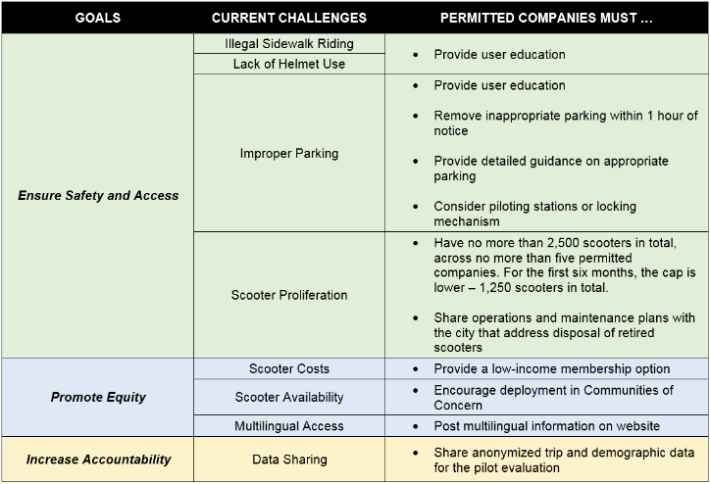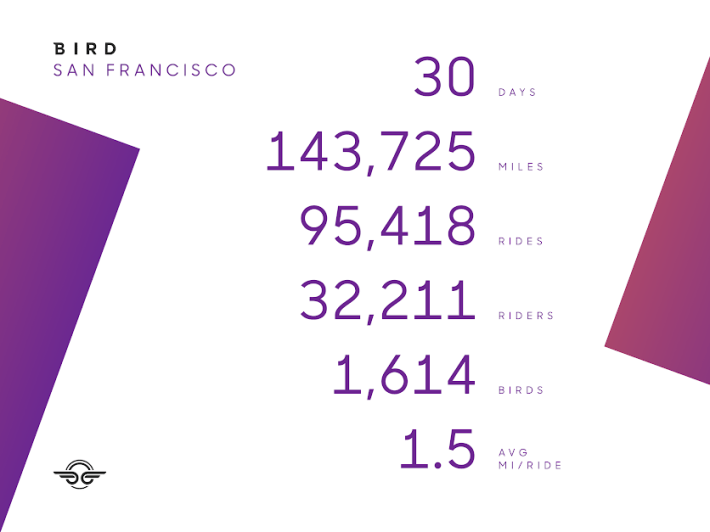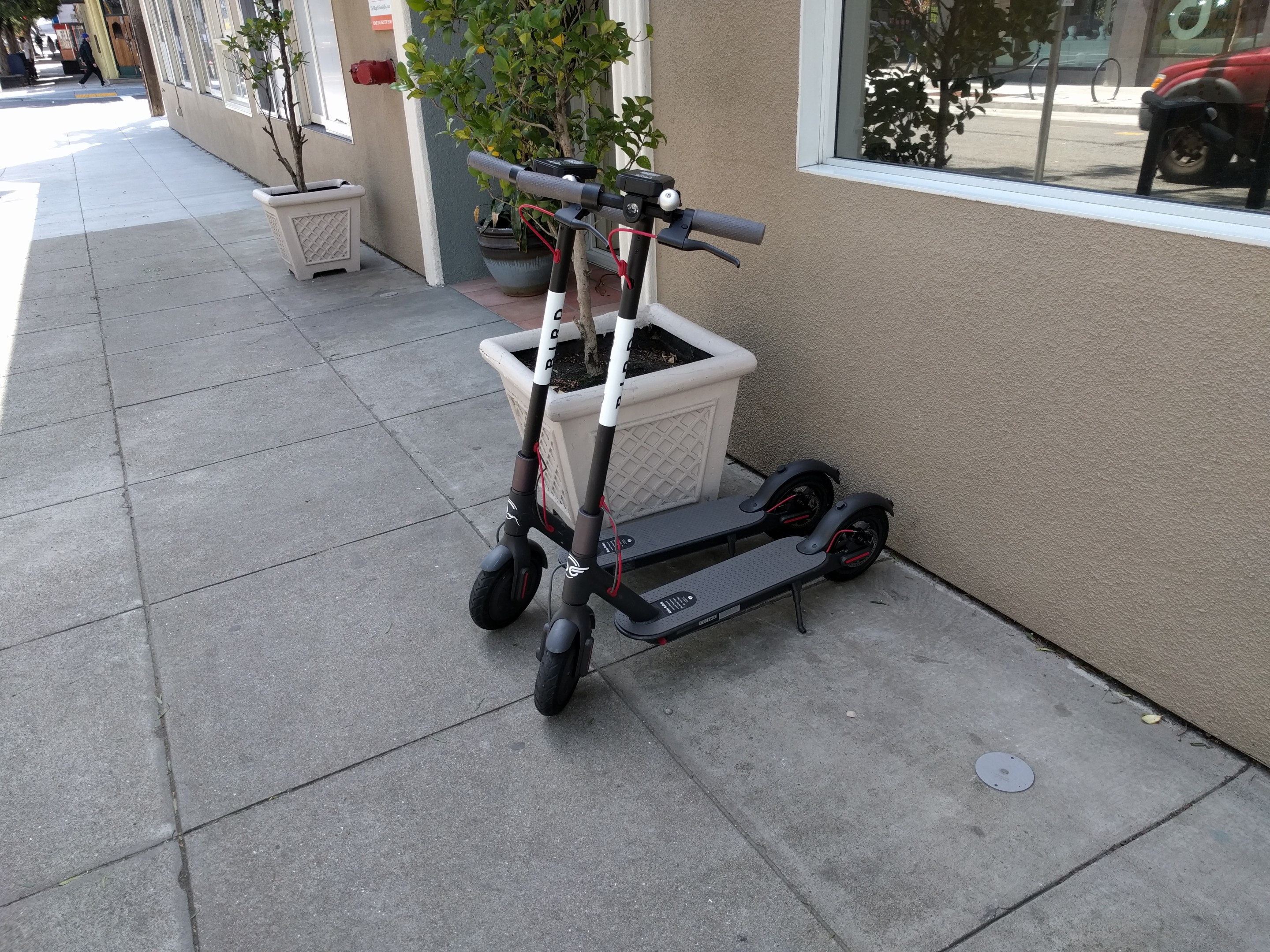During its regular meeting yesterday, the SFMTA board of directors voted unanimously to start a pilot program to issue permits for electric dockless scooter rentals in the city of San Francisco.
What do the new regulations entail? Tom McGuire, Director of SFMTA's Sustainable Streets Division, explained it in a blog post:
The SFMTA’s new “Powered Scooter Share Permit Program” establishes a 12-month pilot program, which may grant up to five permits. For the first six months, a total of 1,250 scooters may be permitted. If the first six months go well, that total may increase to 2,500 in months seven through 12. The increase in permitted scooters would be tied directly to how well any permitted operators meet the standards we set out in their permits.
As part of this program, scooter companies have to come up with solutions to get riders off the sidewalks and to keep the pedestrian right of way clear (both are already illegal, but the new regs will put the onus on the scooter companies to get riders to comply). They will also have to share data with SFMTA, come up with a low-income program, as well as a few other requirements as seen below:

"We believe electric scooters can be a great addition to our transportation system, as long as they aren’t being ridden on sidewalks and obstructing our already limited space for people walking," wrote Walk San Francisco Policy & Program Director Cathy DeLuca in a prepared statement about the new program.
Bird, which so far is the most communicative of the three scooter companies currently operating in San Francisco, was not opposed to most of this regulatory framework--indeed, the company already has its "Save our Sidewalks" pledge which aims for many of the same goals as SFMTA. But they did not want a fixed cap on the number of scooters and issued this statement a short time before the vote: "While the SFMTA is proposing to cap the number of electric scooters to 500 per permit--about 0.1 percent of the nearly 500,000 cars currently in the city--we think allowing for a dynamic cap that responds to the demand for this type of transportation will give people more sustainable, convenient, and affordable alternatives to driving."
The problem for the scooter companies is, given the fixed caps, they're going to have to pull back hundreds of scooters and, as a result, may no longer be able to provide a viable service--especially in the geographically more spread out "communities of concern" the SFMTA wants them to serve.
This was part of the rub for scooter supporters. It's also hard to argue that the electric scooters are damaging if compared to the half-million cars that currently ply and pollute the city of San Francisco. In just the last couple of weeks, a woman was killed crossing Ocean Avenue and a man was killed on 19th Avenue--not by scooters, but by cars. Both streets are known to be dangerous and are part of the 'high-injury network.' (Streetsblog even witnessed a crash on Ocean last year).
Yet these two deaths somehow received far less attention at City Hall or in the press than the scooter debate. Bottom line, scooters are not and never will be as damaging as cars. And if the scooter regs end up jamming up a budding industry that may already be reducing car-miles traveled, they will do more harm than good.

Either way, this new permit program is not the end of the scooter debate. And as people become more accustomed to this form of transportation in their midst, a new equilibrium will happen. The number of rides claimed by scooter companies is pretty phenomenal (see chart above). If data comes in that shows they are really taking a bite out of rideshares, and reducing car miles, and they manage to keep the sidewalks relatively clear moving forward (all big "ifs") then scooters may become an important and mostly positive part of the transportation picture.
Or, as Malcolm Heinicke, vice chair of the SFMTA board concluded after yesterday's vote: "Companies, scooter riders, staff, good luck. Let's make this thing work."





